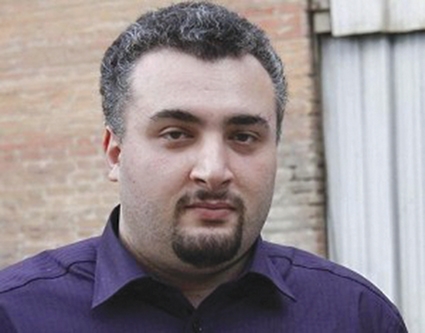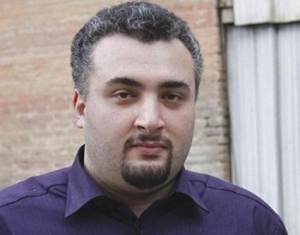Interview: Sergi Kapanadze on the US Presidential Election
The next President of the United States will be announced on the morning of November 10, 2016. With that date looming, the dial on campaign season has been turned up to 11. Bellicose billionaire Donald Trump looks likely to capture the Republican nomination and Democratic Party lifer Hillary Clinton appears primed to overcome a strong challenge from self-professed “Democratic Socialist” Bernie Sanders.
Domestic policy concerns dominate the agenda—and the US has plenty of them at a time of unprecedented dissatisfaction with government. However, foreign affairs issues are never far from the conversation, especially considering Russian aggression in Eastern Europe, the Syrian civil war about to enter its fifth year, and heightened tensions in the South China Sea.
Sergi Kapanadze, a former deputy foreign minister and current dean of Caucasus University, sat down with GEORGIA TODAY to offer his perspective on the upcoming presidential tilt.
Which candidate appears to be the best for Georgia and for the region?
That depends on a few factors, from the Georgian perspective: knowledge of Georgian issues; the second is their rhetoric on how America would act with regards to foreign policy and European affairs. Marco Rubio and Hillary Clinton seem to be the most eloquent on those issues and seem to have the most knowledge and ability to implement something positive. This might change, obviously. We might have a Secretary of State who is completely out of touch.
We have never before had a President who has known Georgia in a previous capacity or has ever met with a Georgian delegation in a previous capacity. Neither [George W.] Bush, [Bill] Clinton, nor Obama had anything to do with Georgia before being elected President. Of the remaining candidates, we have two [Rubio and Clinton] who have that.
Hillary Clinton was charged with implementing the “Reset” to a large degree. How has that affected her image in Georgia, knowing that the reset is not particularly popular here?
Well, she was tasked with implementing the reset. We all know that the reset was a White House idea, not so much of the Secretary of State or the State Department. She was doing it, but at the same time was the first to be concerned with Russia’s actions. So, I think Hillary is not so much associated with the reset as much as Obama and the White House, even though everybody’s fixed image is [Russian foreign minister Sergei] Lavrov and Hillary [Clinton] negotiating.
Two outsider candidates, Trump and Bernie Sanders, have polled really well, and now it looks like Trump will get the Republican nomination. What kind of message does this send to the world and to Georgia? The two-party system in America that seemed so strong is not really functioning like it normally does.
It’s not really about protest candidates or anti-establishment candidates in both parties gaining support. What worries us is that we see a number of candidates whose proficiency in foreign policy is either non-existent or very low, and whose judgement when it comes to assessing the issues of, let’s say Putin in Syria or in this part of the world, we wish were better.
We’ve heard a number of statements by Trump about Putin, not something that Georgians would like to hear, about how nice a guy he is, that kind of thing. I think it’s more a lack of foreign policy vision.
By the way, it’s not just Trump and Sanders, it’s also [Republican senator Ted] Cruz. Cruz is more of an isolationist than the others are. He is arguing ‘let’s go in, bomb, and get out.’ That’s not really a good thing. Rubio and Clinton are the only two who, at least at the rhetorical level, have spoken about the necessity to step up American leadership in foreign policy. And that’s what is important for us.
As it’s clear to everyone that there is not much appetite in Washington or in Europe for NATO expansion, do you think the outcome of the election will change the calculus in any way?
What’s important for us is to have American leadership on NATO enlargement. If you have American leaders who are not paying attention to this problem, who do not care about European security and just react to what happens in Europe, then obviously the enlargement is one of those issues that is always on the agenda but never materializes.
When you have a president and a foreign policy strategy that is about making Europe more secure, and an American president who is ready to push this issue through, what it does is, when the situation is ripe there will be a window of opportunity when Russia is weaker, or they have their hands tied somewhere else. There will be a window of opportunity for enlargement to take place. Without US leadership, we will miss that window of opportunity.
This window of opportunity might come in the next eight years. We don’t want to see a weak President there, or a weak foreign policy. It’s all about increasing the chances.
Do you expect in the next eight years that this window of opportunity might open up?
Yes. The window of opportunity for me is Russia either being too weak or too democratic. Probably not too democratic in the next eight years, although you can have an overnight change situation. The Soviet Union collapsed from 1989-1991, and in 1988 no one predicted that this would happen. So eight years is a very long span of time. You never know what’s going to happen.
For me, the more likely scenario is a weak Russia, a Russia which is losing the war in Ukraine, which is losing the war in the Middle East, which is unable to control the internal situation and economic decline. A Russia which simply does not care that much about foreign policy issues or which cares about foreign policy issues but doesn’t have much capacity to deal with them. That’s the window of opportunity. Can that emerge in eight years? Sure.
Joseph Larsen












